Over 60 million real residential IPs from genuine users across 190+ countries.
Over 60 million real residential IPs from genuine users across 190+ countries.
PROXY SOLUTIONS
Over 60 million real residential IPs from genuine users across 190+ countries.
Reliable mobile data extraction, powered by real 4G/5G mobile IPs.
Guaranteed bandwidth — for reliable, large-scale data transfer.
For time-sensitive tasks, utilize residential IPs with unlimited bandwidth.
Fast and cost-efficient IPs optimized for large-scale scraping.
A powerful web data infrastructure built to power AI models, applications, and agents.
High-speed, low-latency proxies for uninterrupted video data scraping.
Extract video and metadata at scale, seamlessly integrate with cloud platforms and OSS.
6B original videos from 700M unique channels - built for LLM and multimodal model training.
Get accurate and in real-time results sourced from Google, Bing, and more.
Execute scripts in stealth browsers with full rendering and automation
No blocks, no CAPTCHAs—unlock websites seamlessly at scale.
Get instant access to ready-to-use datasets from popular domains.
PROXY PRICING
Full details on all features, parameters, and integrations, with code samples in every major language.
LEARNING HUB
ALL LOCATIONS Proxy Locations
TOOLS
RESELLER
Get up to 50%
Contact sales:partner@thordata.com
Proxies $/GB
Over 60 million real residential IPs from genuine users across 190+ countries.
Reliable mobile data extraction, powered by real 4G/5G mobile IPs.
For time-sensitive tasks, utilize residential IPs with unlimited bandwidth.
Fast and cost-efficient IPs optimized for large-scale scraping.
Guaranteed bandwidth — for reliable, large-scale data transfer.
Scrapers $/GB
Fetch real-time data from 100+ websites,No development or maintenance required.
Get real-time results from search engines. Only pay for successful responses.
Execute scripts in stealth browsers with full rendering and automation.
Bid farewell to CAPTCHAs and anti-scraping, scrape public sites effortlessly.
Dataset Marketplace Pre-collected data from 100+ domains.
Data for AI $/GB
A powerful web data infrastructure built to power AI models, applications, and agents.
High-speed, low-latency proxies for uninterrupted video data scraping.
Extract video and metadata at scale, seamlessly integrate with cloud platforms and OSS.
6B original videos from 700M unique channels - built for LLM and multimodal model training.
Pricing $0/GB
Starts from
Starts from
Starts from
Starts from
Starts from
Starts from
Starts from
Starts from
Docs $/GB
Full details on all features, parameters, and integrations, with code samples in every major language.
Resource $/GB
EN
代理 $/GB
数据采集 $/GB
AI数据 $/GB
定价 $0/GB
产品文档
资源 $/GB
简体中文$/GB
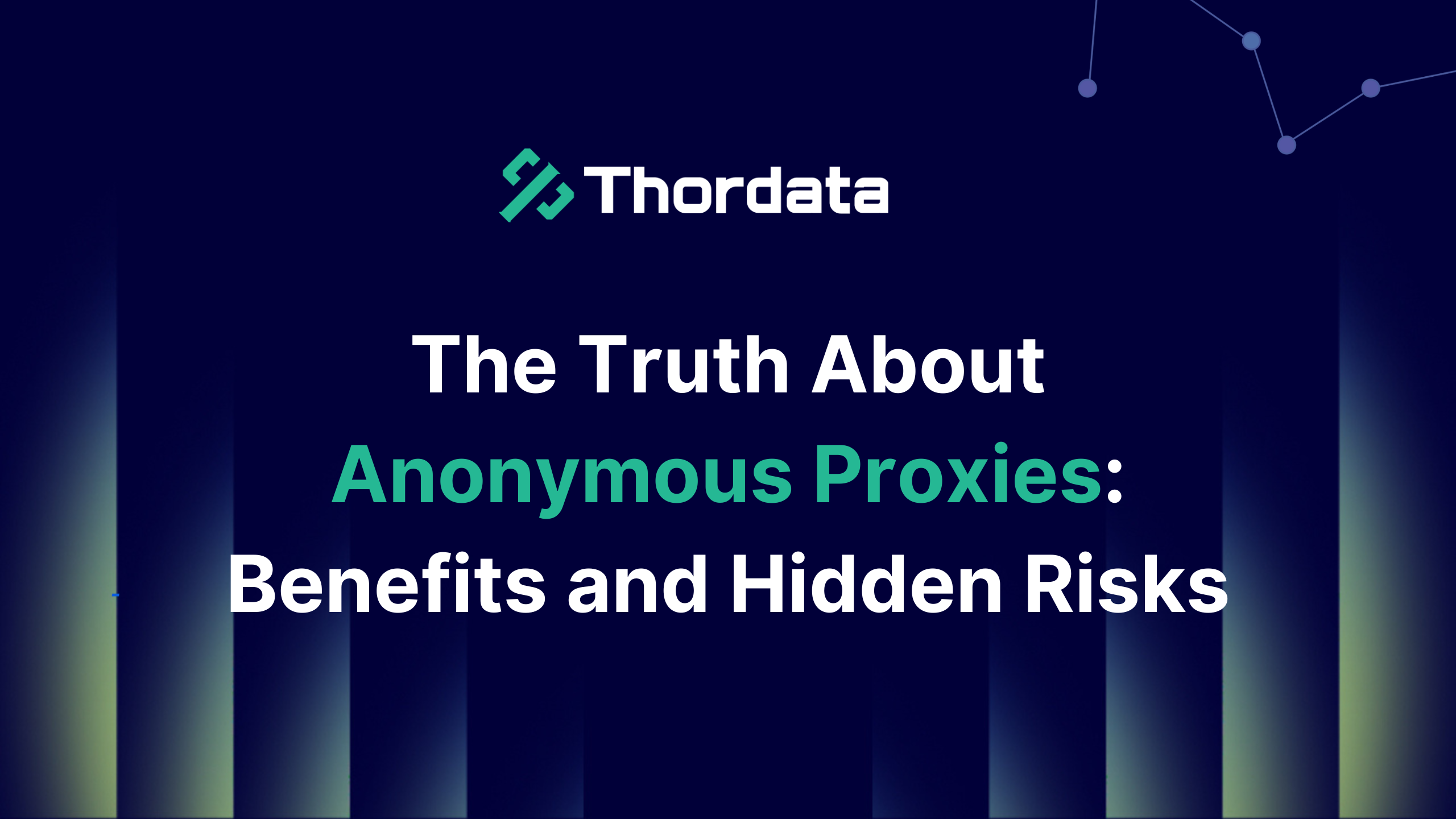

Anonymous proxies stand out as essential tools for protecting online privacy in today’s digital landscape where data breaches cost approximately $20 billion annually. Many users employ these services daily without fully grasping their actual capabilities and significant limitations.
In this tutorial, you’ll learn what makes effective anonymous proxies work, how they protect your identity online, and the potential risks you should consider before incorporating them into your privacy strategy. Let’s explore the real capabilities and limitations of these increasingly popular privacy tools.
Anonymous proxies operate as digital intermediaries between your device and the internet, creating a protective barrier that hides your online identity. These specialized servers process web requests on your behalf, effectively concealing your actual IP address from the websites you visit.
An anonymous proxy, also called an anonymizer, functions as a privacy shield that makes your internet activity harder to track. These servers remove your identifying information before sending requests to target websites. Unlike standard connections, anonymous proxies substitute your real IP address with their own, making it appear as if requests come from the proxy server instead of your device.
Anonymous proxies serve several key purposes:
Protecting personal identity from tracking and surveillance
Bypassing geo-restrictions and censorship to access blocked content
Avoiding targeted advertising based on location
Enabling web scraping and market research anonymously
Accessing region-specific content while traveling abroad
When you connect through an anonymous proxy, a specific sequence takes place:
1. You request to visit a website
2. The proxy server intercepts this request
3. It removes or modifies your identifying information
4. The proxy forwards the modified request to the destination website
5. The website responds to the proxy server
6. The proxy relays the response back to you
This routing process prevents websites from seeing your true IP address or location. They only detect the proxy server’s information, establishing a privacy layer between you and the sites you browse.
Proxy servers offer vastly different levels of identity protection online. Let’s examine the three main types of anonymous proxies based on how they handle your data.
Transparent proxies, despite their misleading name, provide essentially no anonymity protection. These proxies neither hide your original IP address nor conceal the fact that you’re using a proxy service. Typically deployed for caching, content filtering, and authentication purposes, transparent proxies add specific headers to your requests that completely expose your identity to websites.
When you connect through a transparent proxy, your request contains:
– HTTP_VIA header with the proxy’s IP address
– HTTP_X_FORWARDED_FOR header with your actual IP address
– REMOTE_ADDR containing the proxy’s IP address
This header configuration allows websites to easily identify both your real location and the fact that you’re connecting through an intermediary server.
Anonymous proxies (also called semi-anonymous or distorting proxies) offer a middle ground of protection. They hide your real IP address but still reveal that you’re using a proxy server. For many users, this level of anonymity suffices for basic privacy needs like bypassing simple geo-restrictions.
These proxies modify your connection headers by:
– Keeping the HTTP_VIA header (revealing proxy use)
– Replacing HTTP_X_FORWARDED_FOR with the proxy’s address
– Setting REMOTE_ADDR to contain the proxy’s IP
With this setup, websites can detect that you’re using a proxy but cannot determine your actual location, providing adequate protection for casual browsing needs.
Elite proxies deliver the highest level of anonymity by completely masking both your identity and proxy usage. They strip away all identifying information from HTTP headers, making your connection appear identical to a regular direct connection from a typical user.
Elite proxies handle headers by:
– Removing HTTP_VIA completely
– Eliminating HTTP_X_FORWARDED_FOR entirely
– Stripping away Authorization, From, and Proxy-Authorization headers.
This complete anonymity makes elite proxies perfect for sensitive tasks requiring maximum privacy protection.
HTTP headers function as digital fingerprints in your web requests. Each time you connect to a website, your browser sends header information containing details about your device, location, and connection method.
The most revealing headers include:
– X-Forwarded-For: Contains your original IP address
– Via: Indicates proxy usage and software
– Proxy-Connection: Reveals connection through intermediary
The varying anonymity levels among proxy types depend entirely on how they handle these headers – whether they’re passed along unchanged (transparent), modified (anonymous), or completely removed (elite).
Anonymous proxies deliver significant privacy benefits, but they also introduce several security risks that most users completely overlook. You should understand these potential pitfalls before adding proxies to your online privacy toolkit.
Free anonymous proxies present particularly dangerous security trade-offs:
Data logging and selling to third parties despite clear “no-log” claims
Malware injection through advertisements or direct modification of your traffic
Identity theft through unencrypted connections exposing passwords and personal information
Cookie theft enabling account hijacking on various platforms
The business model of free proxy services often relies on monetizing user data in ways not disclosed in their terms of service.
Websites have become increasingly skilled at identifying proxy traffic through sophisticated detection methods. The frustrating “Anonymous Proxy Detected” error typically occurs due to poor IP reputation, high request frequency, or improper proxy configuration.
Some malicious proxy operators actively intercept user credentials as data passes through their servers. Even mainstream VPN services have exposed vulnerabilities allowing attackers easy network access. The most concerning issue is that some proxy services inject malicious code into your browser, transforming a simple browsing session into a significant security breach without any visible warning signs.
Anonymous proxies offer notable advantages for privacy-conscious users and businesses seeking to protect their online identity.
Despite their privacy benefits, the security risks of poorly chosen proxy services demand serious attention. Free proxies particularly create dangers through potential data logging, malware injection, and credential theft. Choosing Thordata will save you time and money and give you the best service on the market!
We hope the information provided is helpful. However, if you have any further questions, feel free to contact us at support@thordata.com or via online chat.
Frequently asked questions
Are there any security risks associated with anonymous proxies?
Yes, there are potential security risks. Some anonymous proxies, especially free ones, may be vulnerable to data leaks, malware injection, and even identity theft. It’s crucial to choose reputable proxy services to minimize these risks.
What are the main benefits of using anonymous proxies?
Anonymous proxies offer several advantages, including bypassing geo-restrictions, avoiding targeted ads, protecting personal identity, and enabling web scraping. They can also improve browsing speed through caching mechanisms.
How can I tell if a website has detected my anonymous proxy?
You might encounter an error message stating “Anonymous Proxy Detected.” This occurs when a website identifies that you’re using a proxy server, often due to poor IP reputation, high request frequency, or improper configuration.
About the author

Yulia is a dynamic content manager with extensive experience in social media, project management, and SEO content marketing. She is passionate about exploring new trends in technology and cybersecurity, especially in data privacy and encryption. In her free time, she enjoys relaxing with yoga and trying new dishes.
The thordata Blog offers all its content in its original form and solely for informational intent. We do not offer any guarantees regarding the information found on the thordata Blog or any external sites that it may direct you to. It is essential that you seek legal counsel and thoroughly examine the specific terms of service of any website before engaging in any scraping endeavors, or obtain a scraping permit if required.
 Looking for
Top-Tier Residential Proxies?
Looking for
Top-Tier Residential Proxies? 您在寻找顶级高质量的住宅代理吗?
您在寻找顶级高质量的住宅代理吗?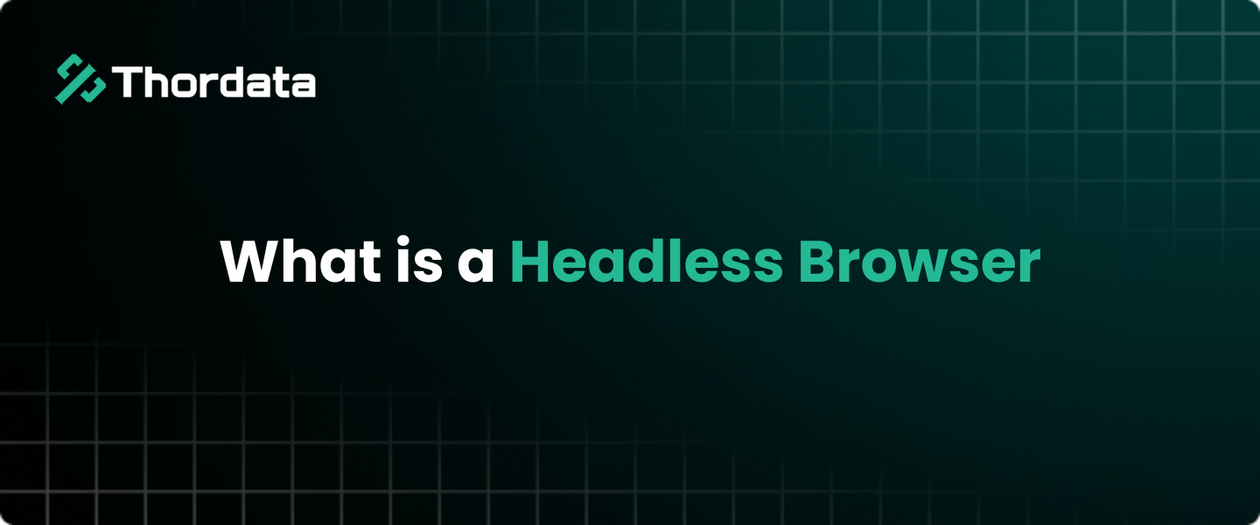
What is a Headless Browser? Top 5 Popular Tools
A headless browser is a browse ...
Yulia Taylor
2026-02-07
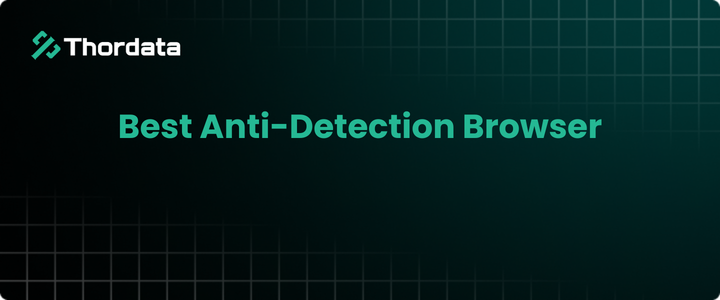
Best Anti-Detection Browser
Xyla Huxley Last updated on 2025-01-22 10 min read […]
Unknown
2026-02-06
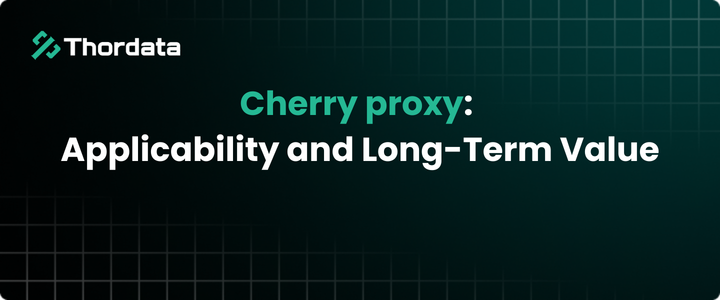
Cherry proxy: Applicability and Long-Term Value
Xyla Huxley With the continuous evolution of proxy tech […]
Unknown
2026-02-06
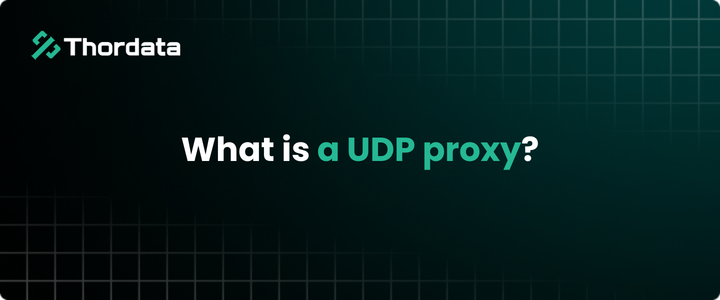
What is a UDP proxy?
Xyla Huxley Last updated on 2025-01-22 10 min read […]
Unknown
2026-02-06
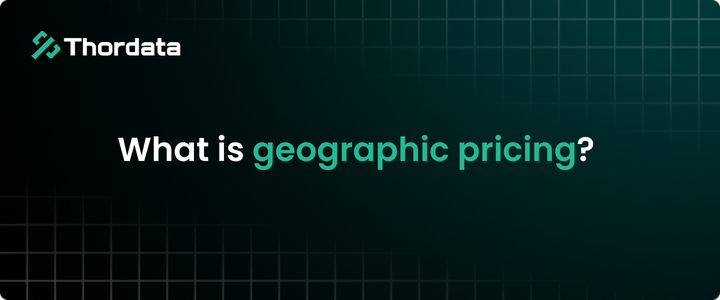
What is Geographic Pricing?
Xyla Huxley Last updated on 2025-01-22 10 min read […]
Unknown
2026-02-05
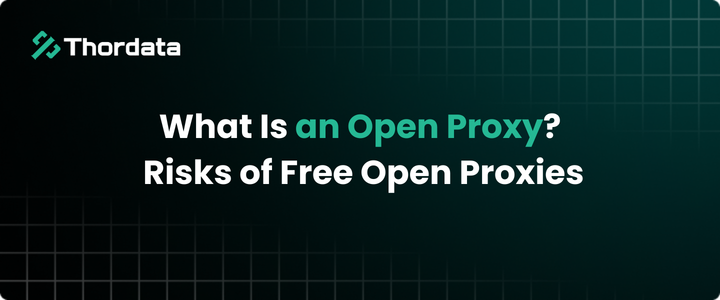
What Is an Open Proxy? Risks of Free Open Proxies
Xyla Huxley Last updated on 2025-01-22 10 min read […]
Unknown
2026-02-04
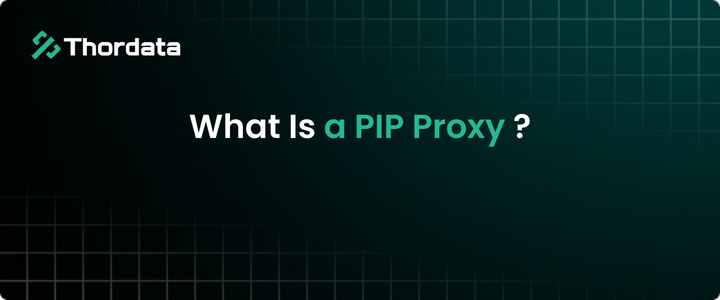
What Is a PIP Proxy? How It Works, Types, and Configuration ?
Xyla Huxley Last updated on 2025-01-22 10 min read Befo […]
Unknown
2026-02-04
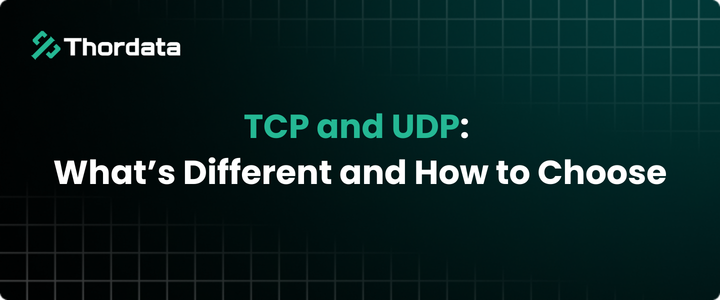
TCP and UDP: What’s Different and How to Choose
Xyla Huxley Last updated on 2026-02-03 10 min read […]
Unknown
2026-02-04
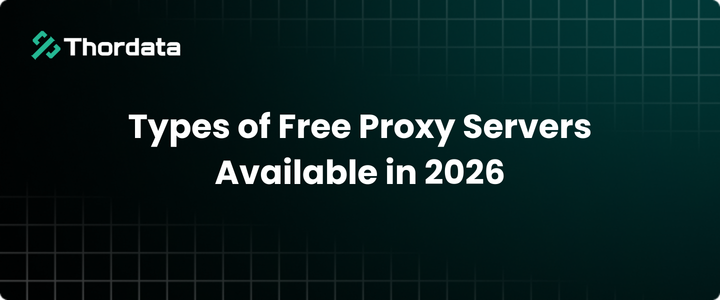
Free Proxy Servers Available in 2026
Jenny Avery Last updated on 2026-02-06 9 min read […]
Unknown
2026-02-01